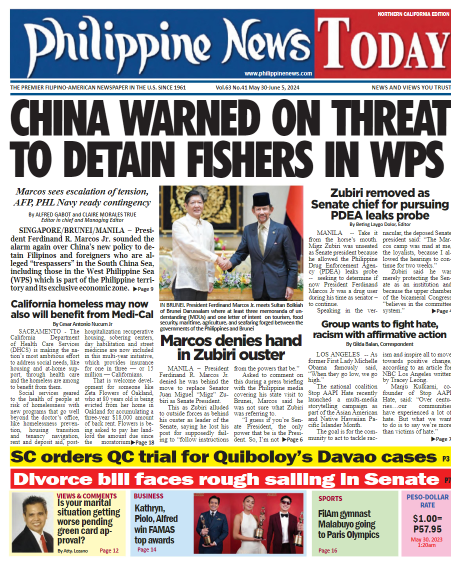By Beting Laygo Dolor, Editor
MANILA – It may not have reached boiling point yet, but a growing number of Filipinos are growing more and more restless with the Marcos regime.
Specifically, Filipinos are now most concerned over corruption and the rising prices of basic goods and services, according to a recent survey conducted by OCTA Research.
Results of the survey were released at the start of this week, and it revealed that concern over corruption rose from 13 percent in July to 31 percent in September.
The top concern was due to inflation, reflected in the rising prices of essential goods and services, cited by 48 percent of survey respondents.
While inflation woes have regularly been a concern by Filipinos, it was the first time that corruption entered the top five national issues in Octa’s surveys.
The 31 percent score was the highest ever, which should cause the administration of President Ferdinand Marcos Jr. to take stronger steps to arrest the issue. In recent weeks and months, public gatherings have slammed the government for what has been seen as a widespread problem plaguing the bureaucracy, with the administration not doing enough to minimize, if not eradicate, the problem.
Said Octa: “The sharp rise in corruption concerns indicates a growing public demand for integrity and accountability in government, as Filipinos increasingly turn their attention from just economic concerns to issues of governance.”
The third highest concern is access to affordable food such as rice, vegetables, and meat at 31 percent, followed by improving wages or salaries of workers at 27 percent, and reducing poverty at 23 percent.
The issue of corruption headed to the fore following revelations of Department of Public Works and Highways officials, senators and congressmen, and contractors colluding to fund shoddy public works projects in exchange for fat commissions, in the third quarter of the year.
Marcos himself had noted the sub-standard and even ghost projects that had been fully paid for. But critics said he was also at fault because he had signed the national budget into law, even if it was replete with “insertions” which were the main source of funding for public works contracts.
It was not only the DPWH which was seen to be a huge source of mind-boggling kickbacks.
Last week, a Senate hearing found that Chinese syndicates had been colluding with Filipino officials and local companies in large-scale smuggling of agricultural products.
Senator Kiko Pangilinan said among the government agencies colluding with the racketeers were the Bureau of Customs (BOC), National Bureau of Investigation, Philippine National Police, Department of Agriculture, Bureau of Immigration and Department of Justice.
All played roles in allowing “Chinese smugglers and local partners to operate freely,” according to the senator.
The US also recently stated that the BOC was a hotbed of corruption, indicating that officials there had been demanding kickbacks even from American companies based in the Philippines.
The European Union has also cited endemic corruption in the Philippine government as one reason soft loans were getting harder to grant to the country.



















